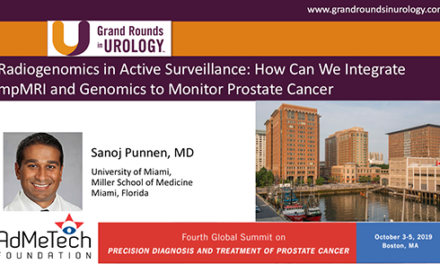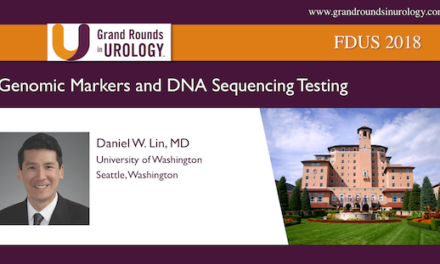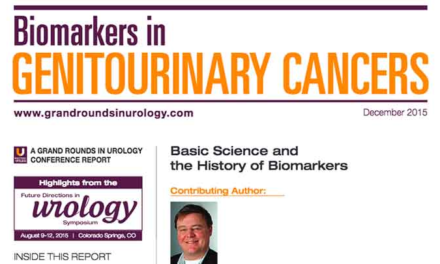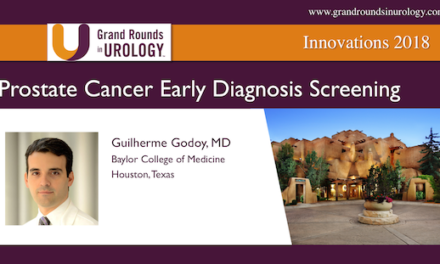Brian T. Helfand, MD, PhD, presented “Germline Testing for Active Surveillance” for the Grand Rounds in Urology audience in September 2020.
How to cite: Helfand, Brian T. “Germline Testing for Active Surveillance” September 2020. Accessed Jan 2025. https://dev.grandroundsinurology.com/germline-testing-for-active-surveillance/
Germline Testing for Active Surveillance – Summary:
Brian T. Helfand, MD, PhD, Chief of the Division of Urology and the Ronald L. Chez Family and Richard Melman Family Endowed Chair at NorthShore University HealthSystem, discusses the results of several germline testing studies and what they reveal about genetic mutation and their impact on the applicability of active surveillance (AS) for prostate cancer patients. He stresses the importance of establishing which gene mutations specifically lead to more aggressive and higher-grade disease, finding that patients with ATM, BRCA1/2, and MSH2 consistently had more aggressive and higher-grade cancer than those with ATM alone. Dr. Helfand then reviews a study of patients with ATM, BRCA1/2, MSH2, and CHEK2 mutations undergoing AS. The study found that those patients were more often recategorized to higher grade cancer, and also more likely to die from prostate cancer, revealing that active surveillance is often not ideal in this patient population.
For more information on genomic testing and prostate cancer, visit our Next Generation Genomics & Biomarkers Learning Center.
ABOUT THE AUTHOR
Brian T. Helfand, MD, PhD, is Chief of the Division of Urology and the Ronald L. Chez Family and Richard Melman Family Endowed Chair at NorthShore University HealthSystem. He is Director of the Personalized Prostate Program and Director of Clinical Research in the Program for Personalized Cancer Care (PPCC). He is also an active surgical scientist who is involved in the care of patients with prostate cancer. His clinical care and research is focused on the implementation of genetic tests and biomarker studies for prostate cancer.
Dr. Helfand completed his undergraduate degree at Emory University. He received his medical training and PhD in Cell and Molecular Biology and Genetics from Northwestern University. He is a fellowship-trained urologic oncologist who has focused his research career on prostate cancer. He was recruited in 2011 from Northwestern University’s Feinberg School of Medicine, where he was faculty in the Department of Urology. Dr. Helfand is an internationally-known urologist and genomic translational researcher. He has received multiple grants from the NIH and has published over 140 peer-reviewed manuscripts in journals such as Nature Genetics, The Journal of Cell Biology, and Science Translational Medicine.
Dr. Helfand is involved in national and international research collaborations as an active member of the International Consortium for Prostate Cancer Genetics (ICPCG), the Prostate Cancer Specialized Program of Research Excellence (SPORE), the IMPACT) study, and the Lower Urinary Tract Dysfunction Research Network (LURN). His current research goals are focused on germline genetic variations and mutations. He is determined to use this information to assist in personal and informed clinical decision making about prostate cancer screening and treatment for patients and their family members.





